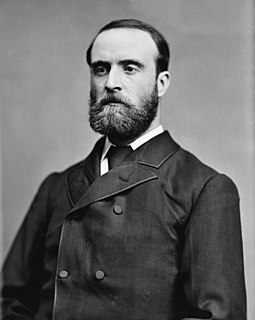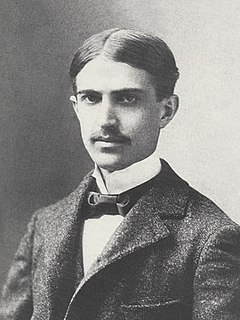A Quote by Johann Wolfgang von Goethe
Literature is a fragment of a fragment. Of all that ever happened, or has been said, but a fraction has been written; and of this but little is extant.
Related Quotes
Whether we be Italians or Frenchmen, misery concerns us all. Ever since history has been written, ever since philosophy has meditated, misery has been the garment of the human race; the moment has at length arrived for tearing off that rag, and for replacing, upon the naked limbs of the Man-People, the sinister fragment of the past with the grand purple robe of the dawn.
Everlastingly chained to a single little fragment of the Whole, man himself develops into nothing but a fragment; everlastingly in his ear the monotonous sound of the wheel that he turns, he never develops the harmony of his being, and instead of putting the stamp of humanity upon his own nature, he becomes nothing more than the imprint of his occupation or of his specialized knowledge.
In the visible world, the Milky Way is a tiny fragment; within this fragment, the solar system is an infinitesimal speck, and of this speck our planet is a microscopic dot. On this dot, tiny lumps of impure carbon and water, of complicated structure, with somewhat unusual physical and chemical properties, crawl about for a few years, until they are dissolved again into the elements of which they are compounded.
There is no mystery in a looking glass until someone looks into it. Then, though it remains the same glass, it presents a different face to each man who holds it in front of him. The same is true of a work of art. It has no proper existence as art until someone is reflected in it--and no two will ever be reflected in the same way. However much we all see in common in such a work, at the center we behold a fragment of our own soul, and the greater the art the greater the fragment.
While people argue with one another about the specifics of Freud's work and blame him for the prejudices of his time, they overlook the fundamental truth of his writing, his grand humility: that we frequently do not know our own motivations in life and are prisoners to what we cannot understand. We can recognize only a small fragment of our own, and an even smaller fragment of anyone else's, impetus.
No one spoke in terms of children's literature, as opposed to adult literature, until around the 1940s. It wasn't categorised much before then. Even Grimm's tales were written for adults. But it is true that ever since 'Harry Potter' there has been a renaissance in fantasy literature. J. K. Rowling opened the door again.





































